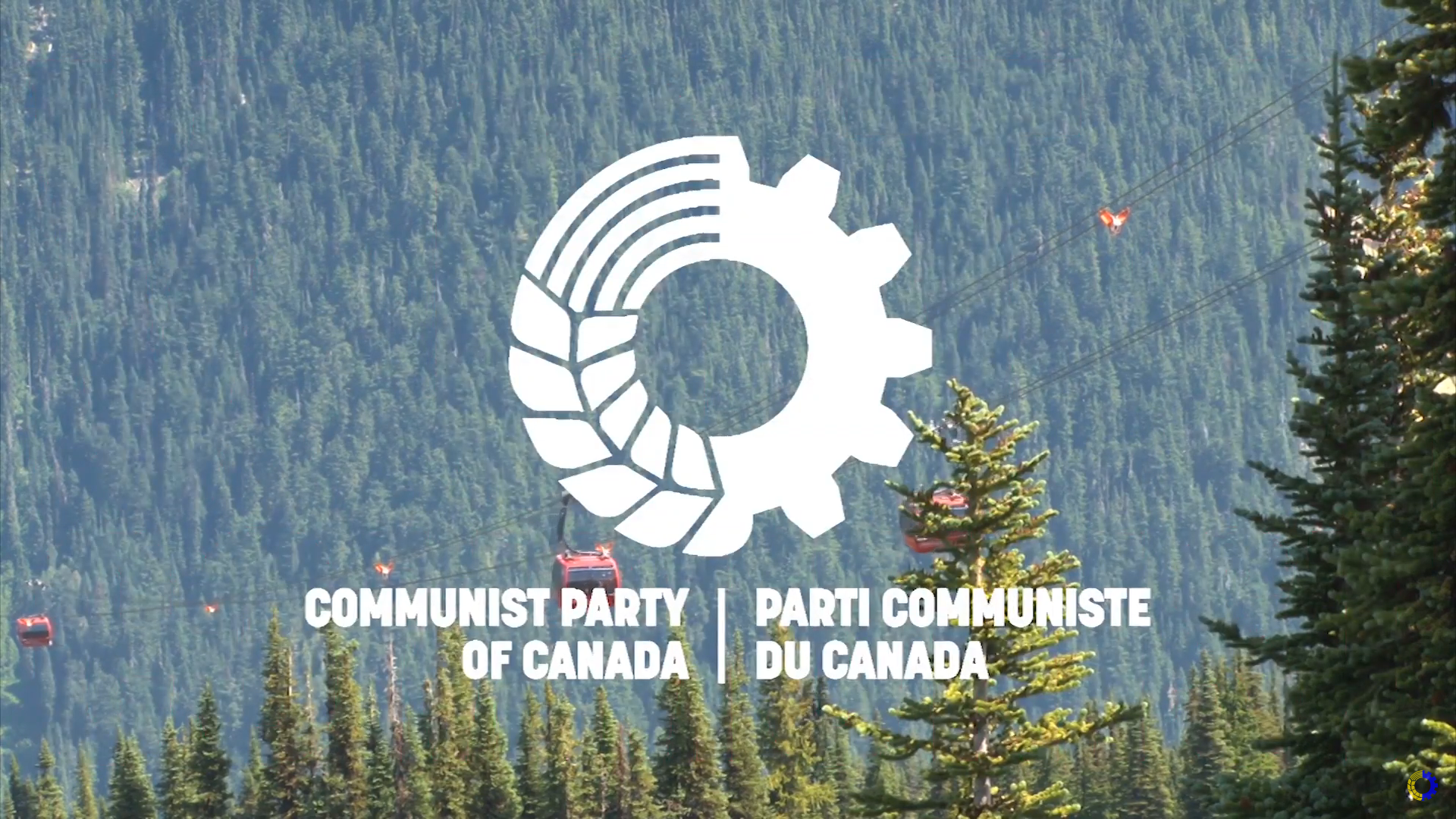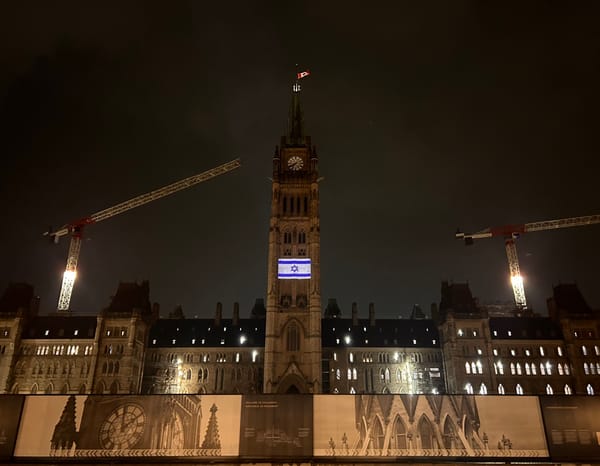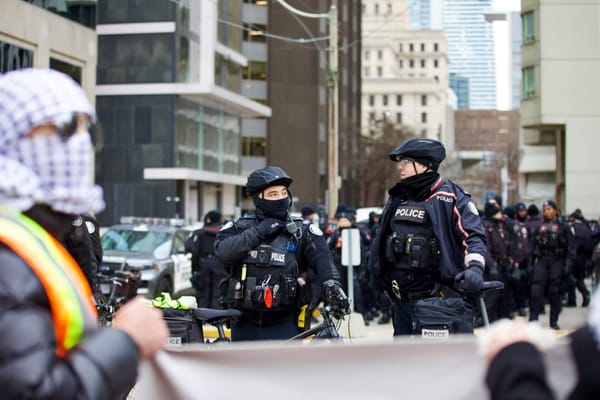he saying, “Capitalism is a death cult” has spread online throughout this pandemic, and with good reason, as COVID-19 is giving us yet another example of how it prioritizes profit over life. As one of my favourite slogans puts it, “The system isn’t broken; it was built this way.”
It’s no wonder, then, that recent surveys show capitalism is increasingly unpopular, especially among young people, while socialism has begun to be viewed more positively. On a much smaller scale, the idea of communism has made a comeback among some radicals.
If we believe that communism — in the sense of a classless, stateless society of freedom — is possible and worth fighting for, then people need to organize to try to make that goal a reality. In other words, we need communist political organizations, and eventually a party or parties.
In order for a political organization to be a revolutionary party in a meaningful political sense — as opposed to being considered a party by Elections Canada — it would need a few features.
First, it would need to be large and respected enough to influence at least a small minority of those it aspired to lead toward a break with capitalism. Second, it would need a coherent strategy for guiding the struggle for socialism — I use this term interchangeably with communism, as did Marx — that took the existing conditions in society into account. That strategy would also need to be informed by key lessons learned in past struggles around the world and across time, distilled as theory.
Unfortunately, no left political organization in Canada is remotely close to being a revolutionary party. That includes the Communist Party of Canada (CPC), despite what longtime CPC member Kimball Cariou argued in his June 29 article in Passage.
Since the 1950s, the CPC has lacked the size, and degree of influence on a mass scale, needed to be a genuine party. (The same is true for all other socialist groups in Canada today.) Moreover, the CPC’s politics haven’t been revolutionary in any sense, in spite of occasional rhetoric, for more than 80 years.
The CPC’s current program proposes a two-stage strategy, which has been a hallmark of CPs around the world since the 1930s. The first stage aims at electing a “people’s government,” which the CPC hopes to be an important part of, in the existing capitalist state. Then, at a later stage, the move to socialism would occur. The program says nothing about new, radically-democratic institutions replacing those of the capitalist state, or about workers’ self-management of workplaces. It also fails to discuss the need for a revolutionary rupture to break the existing state’s repressive power
The existing liberal democratic state isn’t a neutral instrument that can be wielded for or against capitalism depending who’s in government, as its operating purpose is to keep capitalism alive. Top civil servants, central bankers, military, police and other ‘security’ officials — none of them ever elected — are committed to capitalism, and would sabotage or overthrow a government that threatened ruling-class power.
Even if a radical left party takes office, the capitalist class is still in power. That’s why the existing state can’t be the vehicle for moving beyond capitalism — its power must be broken and its institutions replaced in order for a transition from capitalism toward socialism to get underway.
Then there’s the question of what we’re fighting for. The CPC’s conception of socialism is shaped by its insistence that the kind of society that developed in the Soviet Union at the end of the 1920s — based on rapid industrialization directed from above by a repressive one-party state — and later built in China, Cuba and elsewhere, was socialist. (In fact, the CPC still supports the Chinese government).
In my view, which is shared by many other Marxists, those societies weren’t/aren’t socialist or moving toward socialism. The CPC’s program says socialism is “the social ownership of the machinery, raw materials and other means of production.” But there can be no genuine social ownership without the democratic control of society by the working class through new institutions of popular power.
In practical terms, rather than prioritizing forging solidarity and the capacity for self-organization in a profoundly fragmented and divided working class, the CPC’s priority seems to be building itself.
The CPC talks about the need for unions to adopt “class struggle policies.” However, its program fails to recognize the union officialdom as a distinct social layer with its own interests different from those of workers, and then draw strategic conclusions from that reality. Seeing the problem as just bad leaders and policies can lead to cultivating relations with left-leaning officials instead of focusing on building workers’ power.
This, in turn, can lead to mistaking defeats, for which those officials are in part responsible, for victories. The recent Federated Co-Op refinery lockout is a case in point: The union was forced to accept major concessions, but a staff editorial at the CPC’s People’s Voice publication hailed a victory.
The last major struggle in which the CPC was large enough to be influential was the anti-neoliberal fightback in British Columbia in 1983. In Solidarity: The Rise and Fall of an Opposition in British Columbia, historian Bryan Palmer describes its role this way: “It would nudge the labour bureaucracy from time to time (although it would always clear this nudging with the top beforehand), but it would also play a role in keeping unruly leftists in line.” The movement failed; the CPC declared a “limited victory.”
Finally, the CPC program’s celebration of “the struggle for Canadian sovereignty and independence” reveals a misunderstanding of the partnership between Canadian and American imperialism, and the utterly reactionary nature of Canadian nationalism.
We need a party that works constructively to build social movements as part of a long-term strategy for breaking with capitalism and starting a transition toward a classless, stateless ecological civilization. The CPC is not that party or building that party.
We’re a long way from having the party we need, but I hope that in the future, socialists from various backgrounds will be able to lay the basis for one. There’s a planet to win.







Member discussion